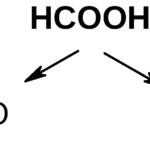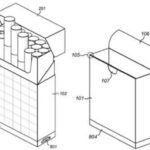Keeping the surroundings clean and healthy requires effective waste management. It lessens the negative effects of waste on ecological systems, conserves natural resources, and lowers contamination. Good waste management lessens the burden on cemeteries by promoting reuse and recycling, controlling dangerous waste, and halting the transmission of disease.
Effective waste management for companies guarantees adherence to environmentally friendly standards and improves their standing in the neighbourhood. Waste disposal is made easier with services like commercial skip hire, particularly for large-scale operations, and waste is managed effectively and sustainably. In the end, waste management is essential to advancing environmental sustainability and safeguarding the health of society for future generations to come.
Maintains the Environment:
The fact that waste management contributes to environmental preservation is an additional reason it is crucial. Generally speaking, it is bad for Mother Nature, wellness and lifestyle to dispose of waste improperly, which includes destroying any kind of trash that people come across. This is because doing so pollutes the air and emits pollution that can wreck the surroundings by contributing to the drastic environmental changes which are now going on.
Every day, individuals can be impacted by powerful storms, typhoons, and sizzling temperatures because of the greenhouse fuel emissions that trash releases into the surroundings. Furthermore, incorrect series and disposal practices can contaminate soil, water, and air which could further affect the atmosphere.
Lowers Emissions of Greenhouse Gases:
Gases from wastes in cemeteries are known to increase global warming, and this includes methane. Garbage management reduces methane emission by collection and segregation of garbage thereby discouraging its dumping on cemetery lands. Besides that, recyclable objects like tenemos metallic objects, plastics, and papers, require less energy than new making, hence reducing emission of carbon dioxide and thus slow the process of global warming.
Preserves Natural Resources:
Reusing and recycling resources is emphasised in waste management, which lessens the need to extract and treat materials from nature. Recycling paper, glass, and metals helps us preserve resources that are renewable like water, gemstones, and lumber. This lessens the negative effects of mining, deforestation, and other resource-extraction activities on the surroundings in addition to saving essential assets.
Climate Change Mitigation:
Releases of greenhouse gases can be decreased through efficient waste management. Methane is an effective greenhouse fuel that is basically produced in cemeteries. By keeping vegetative foods out of landfills, anaerobic digestion and composting can considerably lessen the emissions of methane. Additionally, recycling supports the removal of manufacturing that makes use of plenty of strength, which lowers emissions of greenhouse gases.
Reduces the Cost of Production:
The capacity of waste management to reduce manufacturing costs is another factor that makes it crucial. Recycling is a critical element of handling waste, and with the aid of reusing things like paper, plastic, glass, and oil, you may make contributions to the upkeep of renewable sources. Reusing the belongings you currently have in place of buying something fresh might help to lessen the demand for herbal resources and, extra substantially, decrease the costs of manufacturing. When this happens, you can store a variety of money and time in the long run.
Financial Benefits:
Effective waste management can result in significant financial benefits as well as opportunities for employment in recycling and waste collection. Utilising useful resources from garbage can also save money for enterprises and governments. Effective waste management systems can lessen the financial burden of pollution and related health issues.
Enhances Human Health:
Most of the time, poor management and elimination of various waste materials can lead to several health problems for people. These might include breathing issues, skin discomfort, and other ailments. Waste materials that emit dioxins along with additional poisons, for instance, are hazardous, particularly if they permeate the air and endanger human health.
Furthermore, hazardous substances from garbage that leak into sources of water and waterways can also be dangerous. Because of these issues, people should be educated on how to handle and dispose of their waste appropriately, regardless at home or in a corporate setting, to prevent significant medical conditions from endangering the well-being of people.
Final Words
Waste management is an essential strategy that safeguards our resources, surroundings, and well-being; it goes much beyond simply putting out the trash. The advantages of handling garbage are obvious, ranging from lowering greenhouse gas emissions to encouraging effective use of resources.












